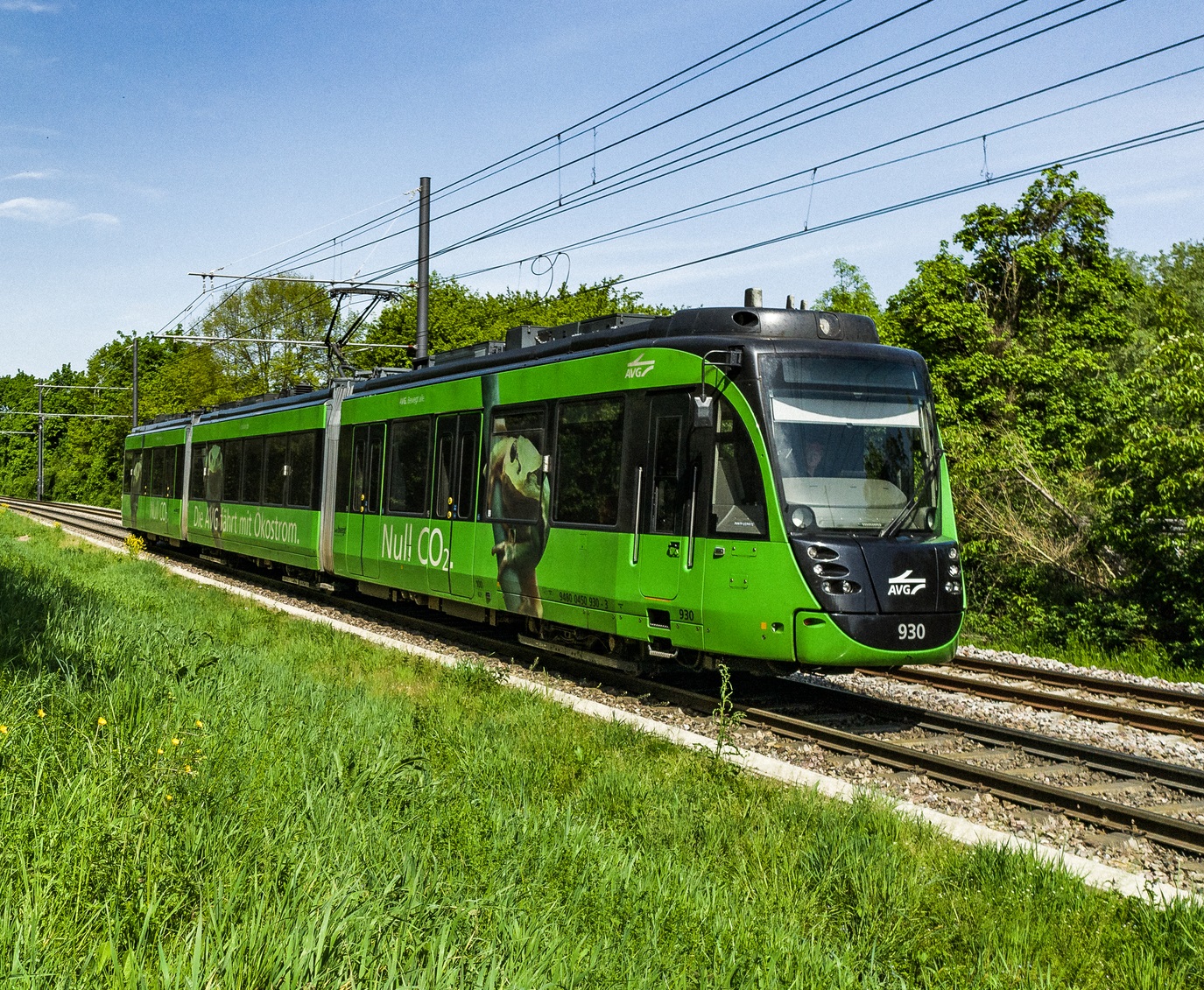DB Engineering & Consulting is part of the new joint project LogIKTram, whose aim is to shift more freight traffic from road to rail, even on medium and short routes. The experts from DB Engineering & Consulting are working on logistics and operator and are putting their expertise in rail technology and logistics to use in designing the freight tram system.

The new joint LogIKTram project aims to shift more freight transport from road to rail, even on medium and short routes. It will use existing tram and rail infrastructure based on the Karlsruhe model to provide electric mobility solutions for logistics in cities and regions. The Karlsruhe Institute of Technology (KIT), the Offenburg University, MARLO Consultants, the DB Engineering & Consulting and other industry partners is developing a vehicle and logistical concept for a “freight tram” in close collaboration with Albtal-Verkehrs-Gesellschaft (AVG), the public transport company in the Karlsruhe area. The freight tram is based on a Karlsruhe dual-system tram-train, and the KIT will study its impact on road and rail traffic.
In the future, more freight will need to be brought onto the rails to mitigate the climate effects of transportation and decrease city traffic. Today, combined transport on the rails mainly moves between major freight terminals and to and from seaports. In cities and urban agglomerations, rail freight transport barely plays a role anymore. Less-than-container-load consignments are transported in these areas, and new concepts need to be developed for them.
The joint LogIKTram project, which is being spearheaded by AVG, the KIT, DB Engineering & Consulting and several other partners, aims to develop a logistics concept and an information and communications technology (ICT) platform that would enable freight to be transported on tram and tram-train cars in the future.
The LogIKTram research project comes online
The LogIKTram research project was started with the aim of improving the situation. The project began on 1 March 2021 and is to run for three years.
LogIKTram is receiving some EUR 2.75 million in funding from the German Federal Ministry for Economic Affairs and Energy (BMWi). LogIKTram is one of the essential subprojects of the larger regioKArgo initiative, which is studying and implementing new forms of less-than-container-load and delivery transport in Karlsruhe and the surrounding region. The regioKArgo initiative has set out to shift even more traffic from road to rail and eliminate emissions on the last mile of delivery. The existing infrastructure of the Karlsruhe model provides the optimal basis for developing new forms of freight transport and testing them in practice.
Freight tram for passengers and cargo
The LogIKTram project has multiple subgoals. Researchers at the KIT’s Institute of Vehicle System Technology (FAST) are developing the technical concept for a freight tram using a dual-system tram-train. It is based on the Karlsruhe model, which has combined tram lines in the city with rail lines in the surrounding area for nearly 30 years. Albtal-Verkehrs-Gesellschaft (AVG) has made an older tram-train available for the project, which will be customized to meet the requirements of freight transport and will be used as the first demonstration vehicle for testing. Building on this first project, another subproject called regioKArgoTramTrain will enable the new train to be used in real operations in the region, not just for test purposes at the depot. Additional issues relating to the transport concept, train operations, organization of transshipment procedures and legal basis need to be solved before the tram-train can be used in regular operations.
Convertible interior creates space
FAST researchers are developing solutions for convertible tram-train interiors so that vehicles can transport passengers as well as make room for cargo. The aim is for transport containers to be loaded and unloaded automatically and secured with devices, such as hooks and locking bars. Precise positioning of tram-trains at stations will be important so that containers can be moved with centimeter precision and normal times allowed for passengers to exit and board can be maintained. Cargo transports should be able to take place without affecting existing timetables.
Simulating passenger and freight transport in the region
The KIT’s Institute for Transport Studies (IfV) is studying the impact that the concept will have on road and rail traffic. The researchers are building on the mobiTopp travel demand model developed at the IfV, a simulation environment for passenger and freight transport in the Karlsruhe model region. The IfV will study different operating scenarios for the LogIKTram and how they will affect traffic. The project’s objective is to optimize use of rail transport capacity based on the time of day. Scenarios must meet and combine the requirements of both passenger transport and freight transport. The combined passenger and freight transport model to be created by the project will allow scenarios for optimizing capacity utilization of rail vehicles for passengers and freight to be evaluated for the first time. This will enable development of sustainable and environmentally friendly solutions that will shift traffic off the roads.

ICT platform that incorporates logistical and technical requirements
IDB Engineering & Consulting experts from Karlsruhe and Berlin are working on logistics and operator concepts and are putting their expertise in rail technology and logistics to use in designing the freight tram system. To start, appropriate commercial logistics and operator concepts are being developed to relieve the burden long term on public urban and regional areas despite surging demand.
To ensure efficient project management, the requirements for an ICT platform and for technical infrastructure and its implementation (vehicle, track infrastructure, loading and transshipment technology requirements) are being fleshed out based on the use cases of the logistics and operator concept. Aspects related to nondiscriminatory access to rail infrastructure are being considered, as well.
The ICT requirements from the logistics and operator concept and the technical requirements will then be integrated into the design of a new ICT platform. The main platform components will be prototyped and simulated, and a digital twin of the concept will be developed.
To prepare for the concept to be put into practice, another subgoal is to design a vehicle system to enable the smooth technical integration of freight transport into the existing network for regional and local public rail transport (a “freight tram”). The system will include a load carrier and transshipment concept along with a vehicle platform with loading and unloading equipment and coupling technology to enable freight and passenger transport to be combined. Critical elements of the concepts will be reviewed in prototypes or simulations and demonstrated. Requirements for partial or fully automated operation of city hubs will also be taken into account.
The FZI Research Center for Information Technology will coordinate the work needed to determine requirements based on the use cases and will incorporate these requirements into the ICT platform design. The ICT platform will help simulate vehicles, automatic load handling, and journeys for evaluating the LogIKTram concept. A number of informational activities are planned within the larger regioKArgo initiative. Dialogue with stakeholders and the public, and technology and knowledge transfer on site and to other regions must be ensured.
Working together for success
The consortium comprises the Albtal-Verkehrs-Gesellschaft (AVG), which is taking the lead, the Karlsruhe Institute of Technology (KIT), the Offenburg University of Applied Sciences, the FZI Research Center for Information Technology, and the companies MARLO Consultants, SimPlan, INIT, Thales and DB Engineering & Consulting. Various logistics companies are also involved as associated partners.
Contact
DB Engineering & Consulting
EUREF-Campus 14
10829 Berlin
Germany





